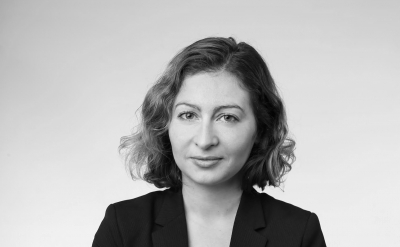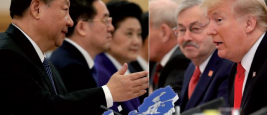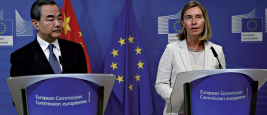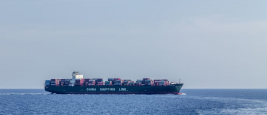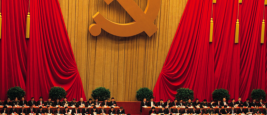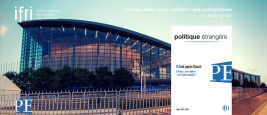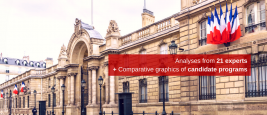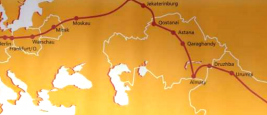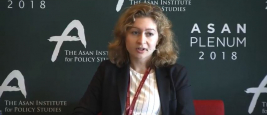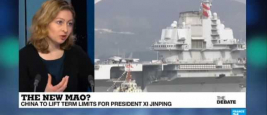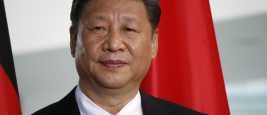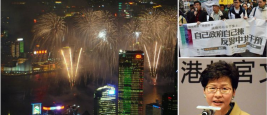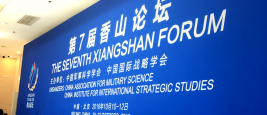
Alice EKMAN
Anciennement Responsable des activités Chine, Centre Asie
Domaines d'expertise :
- Chine
- Taïwan
- Corée du Sud
Alice Ekman était responsable des activités Chine au Centre Asie de l'Ifri. Elle a quitté ses fonctions en septembre 2019 pour rejoindre l'EUISS.
Chargée de cours sur la Chine contemporaine à Sciences Po, parlant le mandarin, elle conduit régulièrement des terrains de recherche en Chine et en Asie de l’Est. Ses travaux portent sur la politique intérieure et extérieure de la Chine, les relations Chine-Europe/France, la péninsule coréenne et Taïwan. Elle s’intéresse également à la restructuration de la gouvernance régionale ainsi qu’aux pratiques diplomatiques.
Elle a été chercheur invité à l’Université Tsinghua (Pékin), à la National Taïwan Normal University (Taïpei), et plus récemment à l’Asan Institute for Policy Studies (Séoul). Alice Ekman est titulaire d’un doctorat en relations internationales de Sciences Po, Paris et d’un master de la London School of Economics spécialisé sur la Chine. Elle est actuellement membre du comité européen du Council for Security Cooperation in the Asia Pacific (CSCAP).Parmi ses publications récentes: La Chine dans le Monde (dir.), CNRS Editions, février 2018.
Navigating the mounting tensions between the United States and China is a geopolitical minefield. Is Europe up to the challenge?
“Smart city” development has become a fashionable policy and research topic. A growing number of central and local governments in Europe, Asia, Africa and Latin America, in partnership with companies from diverse sectors (construction, transport, energy, water, etc), consulting firms, NGOs and...
China increasingly sees its flagship foreign policy project as a tool for restructuring global governance and a vector for promoting a new form of globalization.
What role do political values play in Europe-China relations 70 years after the signing of the Universal Declaration of Human Rights?
The Chinese presence in the Mediterranean is raising new questions among the diplomatic services of the Maghreb countries, as well as those of southern Europe. Indeed, over the past five years, China has been translating its national priorities with increasing activism in the Mediterranean....
As the 19th National Congress is now over, questions about foreign policy implications of China’s leadership reshuffle are raised.
Alice Ekman deciphers the 19th National Congress of the Communist Party of China in foreign policy terms.
Since Xi Jinping became president of China, the number of think tanks has considerably increased.
France’s current presidential campaign has created an unprecedented situation fuelled by revelations and a total absence of restraint, but it has not truly taken account of the disruptions of the last year: Brexit, the attempted coup in Turkey, the election of Donald Trump, the recapturing of...
More than three years have already passed since China’s new silk roads were launched by President Xi Jinping. When he first mentioned the idea in an autumn 2013 speech in Kazakhstan, questions quickly emerged on the meaning of this general concept, which soon became widely promoted through a...
As China elaborates on the design of its "Belt and Road Initiative" (OBOR), the place of Europe within this project is slowly but surely taking shape.
China’s ambitious One Belt One Road (OBOR) Initiative is redefining China’s role in the world economy. With over $900 billion in investments covering more than 65% of the world’s population, OBOR aims to develop new markets, integrate far flung regions, and stabilize China’s borders. But as...
This Friday, April 27, the South Korean and North Korean leaders will meet in the demilitarized zone dividing their estranged countries to discuss improving relations and possibly even formally ending the Korean War, which has continued in the form of an often tense and fragile armistice since...
Does China now have a president for life? China's leader Xi Jinping could stay in power indefinitely following the ruling Communist Party's proposal to scrap term limits.
"I came to tell you, is that Europe is back". French President Emmanuel Macron says China and Europe should work together on Beijing's "Belt and Road" initiative. Macron began his first state visit to China with a stop in Xian, an eastern departure point of the ancient Silk Road.
On his first state visit to China, the French president has pushed for more European involvement in China's ambitious multi-billion dollar project to revive the ancient Silk Road trade route. China specialist Alice Ekman talks to RFI's Amanda Morrow about how China is likely to respond to...
China and France see French president’s visit as chance to transform bilateral ties after Brexit and election of Donald Trump. The French president, Emmanuel Macron, will make his first official visit to China...
Increasingly, China’s diplomacy is using key words commonly used by liberal democracies, but the meaning differs greatly. This evolution is changing the terms of the debate without changing a single term.
20 years after its retrocession to China, the 1st July 1997, what are the political and institutionnal autonomy guaranties for Hong Kong, while Carrie Lam is about to take its lead? How long will Hong Kong youth claim its own identity? What challenges for the World City?
A closer look at China’s vision for remaking Asian security, and what the United States can do about it. In October, China hosted the seventh Xiangshan Forum in Beijing, during which Vice Foreign Minister Liu Zhenmin outlined a framework for a regional security architecture...
Beijing has a plan for a new regional security architecture, and it’s not based around alliances.



